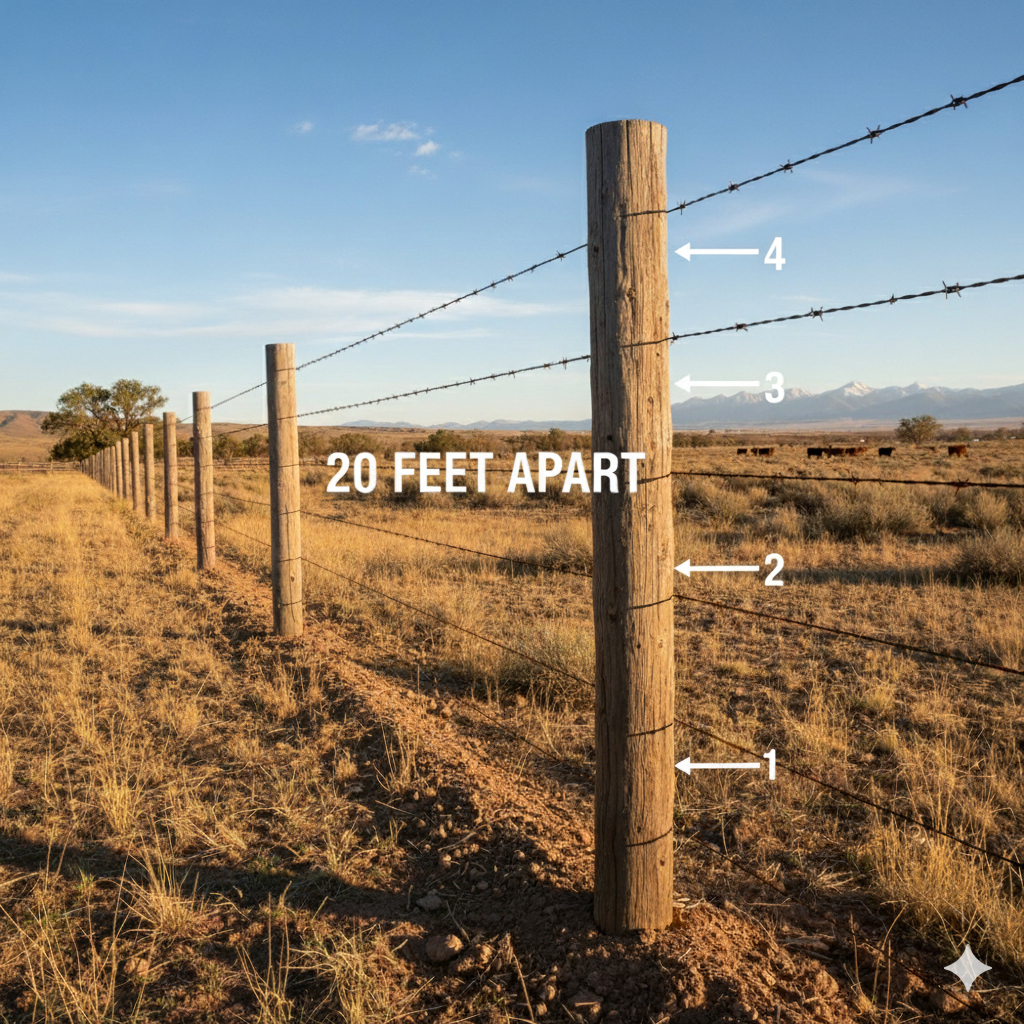
Do you understand Colorado’s Fence Law and how it affects livestock liability, especially when animals end up on public roads or other people’s property?
Even in areas where the default is “open range,” like Pueblo and Huerfano counties, livestock owners can be held responsible if their animals cause damage or accidents—especially on public roads. That’s why ranch liability coverage isn’t just smart—it’s essential. A regular homeowners policy doesn’t cover this sort of exposure.
✅ 1. What Is a “Fence Out” Law?
Colorado follows a “fence out” system, which means:
- • Landowners must build fences (a “lawful fence”) if they want to keep livestock off their property.
- • Livestock owners are generally not liable for property damage if their animals wander onto unfenced private land.
- • This is distinct from “fence in” states, where livestock owners must contain their animals at all times.
🛠️ 2. What Counts as a “Lawful Fence”?
To recover damages from a livestock owner for trespass, a landowner must prove their fence meets the legal standard of a “lawful fence.” In Colorado, this fence must:
- • Be well-constructed, typically with three strands of barbed wire (or a fence of like efficiency).
- • Have substantial posts spaced about 20 feet apart.
- • Be sufficient to turn ordinary horses and cattle.
- • Include gates that are just as secure as the fence itself.

⚖️ 3. Liability for Damage on Private Property (Crucial Distinction)
• Property Damage: If livestock break through a property owner’s lawful fence that is in good repair, the livestock owner can be held liable for the resulting property damage (like damaged crops).
• Personal Injury: The state’s Fence Law statute (C.R.S. § 35-46-102) only addresses property damage. It does NOT shield a livestock owner from liability for personal injury to a person caused by their animal, even if the person’s land was unfenced. Personal injury is generally governed by the law of negligence.
🚗 4. Livestock on Public Roads and Highways
• The Fence Law does NOT apply to public roads. Livestock owners can be held liable if their animals cause accidents involving vehicles or people on public roads.
• Colorado law prohibits livestock from grazing or running at large on roads, highways, or in municipalities.
• If livestock escape and cause an accident due to an owner’s negligence (e.g., failure to repair fences near a highway, repeatedly allowing stock to roam), the owner may face civil penalties and be responsible for property damage and/or personal injury claims.
🐄 5. Open Range vs. Closed Range
• Open Range areas (the default in many parts of the state) allow livestock to roam freely unless fenced out by a landowner.
• Closed Range areas are designated by county or local ordinances, which override the state’s “fence out” rule and generally require livestock owners to fence their animals in.
• Liability rules may vary, making it essential to know your local county’s regulations.
📝 Insurance Tie-In
Colorado’s fence law puts the burden on landowners to fence out livestock—but if your animals get onto a public road and cause an accident, or injure a person on private property, you could be liable for significant financial loss. That’s why robust ranch liability coverage isn’t optional—it’s essential for protecting your operation.
Disclaimer: I am a licensed insurance agent, not an attorney. This blog post is for informational purposes only and is not legal advice. For questions regarding the Colorado Revised Statutes or liability concerns, you should consult with a qualified legal professional.
If you would like to understand more about insurance liability or would like a complimentary review of your property insurance policy, please schedule a consultation below.

